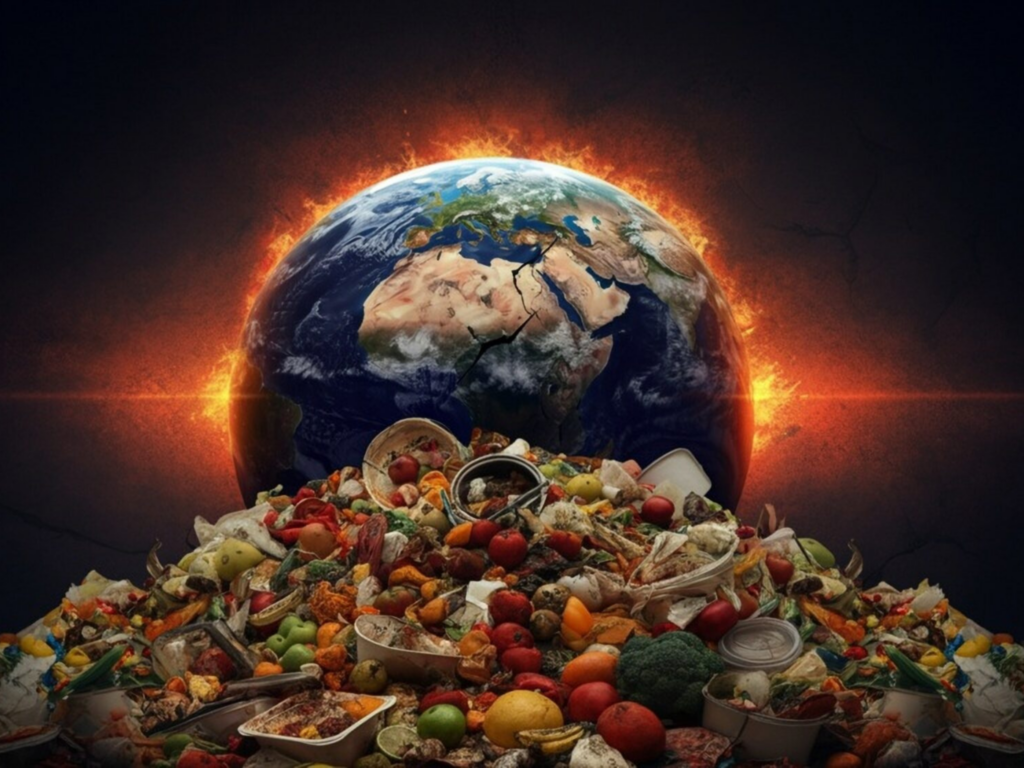
The use of social media can help reduce individuals’ food waste, but it also drives impulse purchases, presenting a conundrum for businesses looking to shrink their climate footprint.
Social media can both drive food waste and help people reduce it, according to a new study that calls on governments to improve consumers’ media literacy to tackle the issue.
Researchers from China’s Jiangnan University surveyed over 1,024 residents in Shanghai to analyse the impact of social media use, materialism, obsessive-compulsive buying, and impulsive buying on food waste.
They found that while the spread of information on food conservation and waste minimisation on social media does help reduce food waste, these platforms also drive compulsive purchases through brand marketing and partnerships with famous personalities, which in turn leads to more waste.
“Hunger isn’t the driving force behind buying food – rather, it’s to meet short-term mental requirements,” the authors wrote in the Waste Management journal. “When buying food, [people] might overlook its shelf life, storage status, and dietary regimen, leading to its expiration or neglect before proper consumption, which could culminate in food wastage.”
How social media impacts purchases and food waste

The researchers stated that many organisations and government bodies employ social media to spread awareness campaigns and steer consumers towards more conscious consumption habits to reduce food waste. These platforms enable the distribution of surplus food, while shaping public opinion through celebrity and influencer advocacy.
“Through disseminating advice on sensible buying and meal preparation on social platforms, individuals gain knowledge on shopping and cooking tailored to their specific requirements,” the study noted.
The authors found that active social media users are less likely to waste food, with tailored pages and software helping educate consumers about food management techniques. Specialist apps like Flashfood and Too Good To Go are popular and help redistribute surplus food and minimise waste.
“The real-time revision of safety data, like the shelf life of food, enables the efficient reallocation of leftover food supplies. Shoppers have the option to buy food at reduced rates, significantly diminishing the likelihood of retailers disposing of food because it expires,” explained the study.
At the same time, there’s a significant link between social media, materialism, and impulsive buying, the research found. “An increase in social media usage correlates with a rise in ad exposure and a shift towards materialism among consumers,” the researchers said.
While influencers can help raise awareness about food waste, they frequently post about brands and products, which leads to a sense of obligation among users to keep up with trends and buy the latest products due to peer pressure. Plus, online marketplaces use visual cues, personalised ads, and time-sensitive sales to lure shoppers into spontaneous purchases.
That leads people to buy food items they don’t need, stockpile them past their expiration date, and toss them in the bin.
Governments can leverage social media to accelerate food waste reduction

Social media is a complex landscape: influencers both promote materialism and educate users about reducing food waste. They can “effectively diminish food wastage through the advocacy of waste prevention”, but they also contribute to it by reinforcing impulsive purchases, the authors said.
There are several things policymakers can do to promote food waste reduction without the effects of materialism. The research points out how in China, engaging in “lavish and wasteful actions” like feigning eating and overeating during live broadcasts is “expressly forbidden”.
Government organisations can use online platforms to disseminate pertinent legislation and policies, public service ads, and advice on food conservation, which the researchers say can foster a practice of valuing food and make people more conscious about wasting it.
“Policymakers should focus their efforts on creating suitable societal standards for food management practices and mandating that digital platforms rigorously forbid employing deceit or undue incentives to convince consumers to make purchases,” they added. Businesses, meanwhile, must support consumers in developing a concept of “healthy and logical consumption”.
Outlining why this is important, the researchers pointed to the “enormous potential” of food waste reduction for addressing food security and lowering greenhouse gas emissions. A third of all food is wasted across the world, resulting in up to 10% of all emissions.
Households are responsible for 60% of it, totalling 631 million tonnes or a billion meals per year (and that is a conservative estimate). Each person wastes about 79kg of food on average, and the total is equivalent to 1.3 meals daily for every individual impacted by hunger around the world.
According to climate action non-profit Project Drawdown, following plant-rich diets and reducing food waste are the two most impactful actions individuals can take to fight the climate crisis and lower personal GHG emissions.
“The government and social media platforms should guide the public to have a correct understanding of consumption information, so as to improve the media literacy of consumers,” the study stated.
The post Social Media Mixed Bag in Food Waste Fight: Influencers Educate Against It While Promoting Impulse Buys appeared first on Green Queen.
This post was originally published on Green Queen.